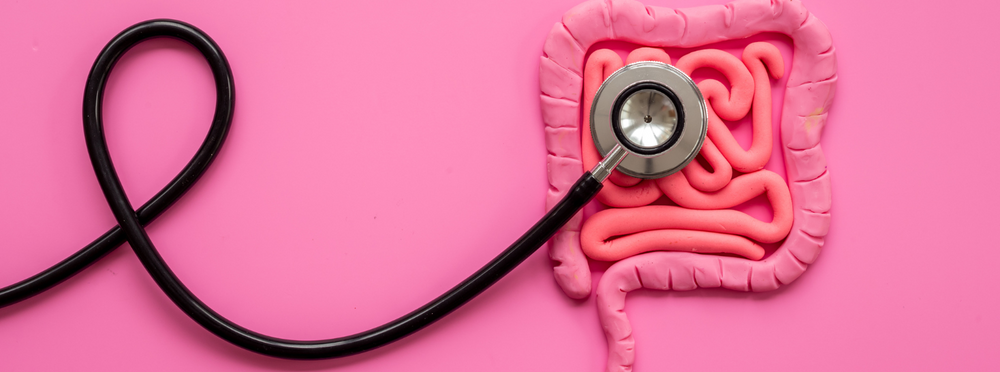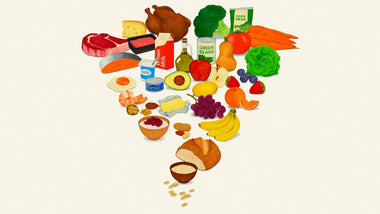Why Are More Young People Getting Colon Cancer?

You might be surprised that a cardiologist would have something to say about colon cancer. But we’re seeing a parallel - younger people developing diseases that used to only strike older individuals. As it turns out, the same thing that causes cardiometabolic disease earlier in life may also be setting us up for earlier and more aggressive colon tumors.
The Worrisome Trend
Colorectal cancer, also known as colon cancer, has long been seen as a disease that primarily affects older adults. But in the past two decades, something concerning has happened: the rate of colon cancer in people under the age of 55 has more than doubled. And the sharpest rise is among those under 40. These aren’t isolated cases. It’s a growing trend that has doctors and researchers searching for answers.
So far, no single cause has been pinpointed. But new research is starting to reveal potential contributors and one of them may be lurking in our gut.
A New Clue: Colibactin and Gut Bacteria
A recent study published in Nature has identified a strong link between early-onset colorectal cancer and a toxin called colibactin, produced by certain strains of gut bacteria like E. coli. Colibactin is a “genotoxin”, which is a compound capable of damaging DNA. Researchers analyzed tissue samples from nearly 1,000 colorectal cancer patients across four continents and found that most had mutations in their tumors that matched a signature left by this bacterial toxin.
What’s especially noteworthy is that patients under the age of 40 were three to five times more likely to carry these mutations than older patients. Even more surprising? These mutations appear to originate in early childhood—possibly even before age 10.
While this doesn’t prove colibactin causes colon cancer, it’s a compelling clue. And it reinforces something we’re learning again and again: the health of our gut microbiome, the trillions of bacteria living in our digestive tract, can have long-term, far-reaching consequences.
We Still Don’t Know the Full Story
Colibactin isn’t the whole story. Not everyone with colon cancer has these mutations. And not everyone with colibactin-producing bacteria gets cancer. So what’s going on?
Researchers believe it’s likely a combination of factors. Our environment, diet, medications, level of physical activity, and other lifestyle choices all shape our microbiome - starting even in childhood. Over time, these factors may work together to encourage harmful bacteria to flourish or behave in damaging ways.
For example, early antibiotic use has been linked to an increased risk of colorectal cancer later in life, possibly because antibiotics can wipe out beneficial bacteria and allow harmful strains to take over. Other possible contributors include how we were born (vaginal delivery vs. C-section), whether we were breastfed, and whether our diets as children included ultra-processed foods.
The Fiber Connection
If there’s one thing nearly all Americans have in common, it’s this: we don’t eat enough fiber. In fact, approximately 95% of us fall short of the recommended daily intake.
That’s a big problem, especially for gut health. Fiber is essential fuel for our beneficial gut bacteria. When we eat a fiber-rich diet full of fruits, vegetables, legumes, whole grains, and nuts, we help the good bacteria thrive—and crowd out the bad. Fiber also reduces inflammation, improves digestion, regulates bowel movements, and may even bind to and help eliminate toxins in the colon. Fiber also has wide-ranging effects on cardiometabolic health. It helps reduce cholesterol absorption, keeping LDL levels down, modulates glucose absorption for steadier/lower insulin release, and supports natural GLP-1 production.
On the flip side, a low-fiber diet (especially one high in ultra-processed foods) can leave our gut microbiome undernourished, unbalanced, and more vulnerable to disruption. That low-fiber diet also leaves our cholesterols elevated, our blood sugars high, and our appetites unsatisfied.
But here’s the important point - we can modify this!
Animal studies have shown that changing fiber intake can impact tumor growth and the activity of toxins like colibactin. Meanwhile, adding 10 grams of fiber per day (the equivalent of what’s in 2 servings of Step One Foods) raises natural GLP-1 production by 56%! In a matter of days!
Colon Cancer Screening: When to Start
Because early-onset colon cancer is on the rise, guidelines have shifted. The U.S. Preventive Services Task Force now recommends that all adults at average risk start screening at age 45. This can be done through colonoscopy, at-home stool tests, or other approved methods. People with a family history of colon cancer or other risk factors may need to start even earlier.
So if you’re over 45 and haven’t yet had your colonoscopy, what are you waiting for? Get screened for this condition. Early detection saves lives. In fact, when colon cancer is found early, it’s one of the most treatable forms of cancer.
And if you’ve not been screened for high cholesterol, high blood pressure or high blood sugar, I’d ask the same thing! 80% of heart disease need not exist. But you can’t possibly know if you’re at risk if you have no data.
About Step One Foods
Step One Foods offers convenient, scientifically-formulated foods clinically validated to rapidly reduce cholesterol and improve cardiometabolic health. Real food. Real results. Unapologetically delicious. Learn more at steponefoods.com.

Tested & Proven Results.
- Cardiologist formulated
- Supported by over 500 publications
- Clinically-proven, in a double-blind randomized trial with Mayo Clinic and The University of Manitoba
80% of participants lowered their cholesterol in just 30 days. With just two servings per day, Step One Foods offers a proven-effective way to naturally lower LDL (bad) cholesterol.
Get heart health tips and articles like this, delivered right to your email.
New articles every week.
You may also like...

Why Most New Year’s Resolutions Fail - And How to Right-Size Yours

You don’t need to avoid foods with cholesterol…except for these



